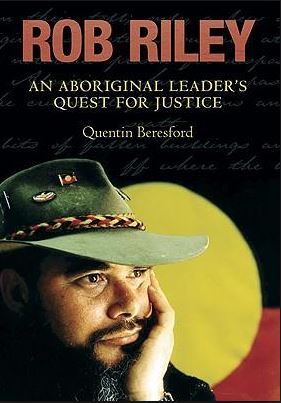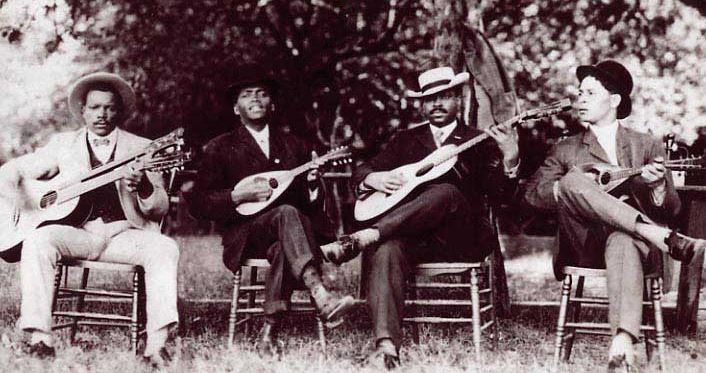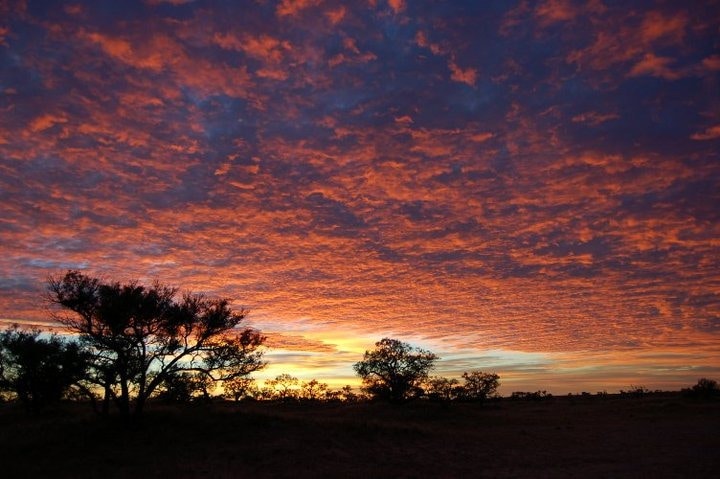The execution of Midgegooroo (by firing squad)
March 8, 2016It’s Still in My Heart, This Is My Country: The Single Noongar Claim History
March 9, 2016
Rob Riley was a prominent Aboriginal campaigner; he was articulate in confronting political leaders and he was very shrewd with the media. Riley was at the forefront of many highly charged political debates across a range of issues; then in 1996 he committed suicide at the age of forty one. This volume is very reader friendly in that it also describes the historical context and political environment in which Riley was working.
Given access to three generations of Riley’s family’s native welfare files, the author outlines how a boy, his mother and his grandmother were removed from their families and placed in institutions. Riley was taken from his mother at five months of age and was placed in Sister Kate’s; a home for “fair-skinned” Aboriginal children.
He was told his family was dead until a chance meeting with an Uncle led to him eventually being reunited with his family when he was twelve. The author outlines how this period was a struggle for Riley and how he found it very difficult to adjust to family life. The author argues cogently that his removal and institutionalisation deeply scarred Riley’s emotional wellbeing and also laid the foundations for his highly developed understanding of racism that was to emerge in his later work. In a 1984 media interview he was asked the inevitable question about his Aboriginality. When asked what percentage of Aboriginal blood he had, Riley replied that he was “as Aboriginal as an Aborigine can be.”
After time in the army, Riley joined the Aboriginal Legal Service (WA) as its Executive Officer. When the battle over mining at Noonkanbah occurred he was among the leadership; developing his views and forging strong friendships. Riley was elected to the National Aboriginal conference at 27 years of age and became its Chair within two years; this itself demonstrates his political acumen. While there he led the fight on two key issues: land rights and for an inquiry into Aboriginal deaths in custody.
Riley lobbied the Hawke government to introduce land rights legislation federally and was disgusted when Bob Hawke caved in to pressure from Western Australia’s Burke government. However, somewhat strangely, he later became a key adviser to Gerry Hand, the Federal Minister for Aboriginal Affairs.
After the Royal Commission Into Aboriginal Deaths in Custody was established Riley worked on it with Pat Dodson, after which he returned to the Aboriginal Legal Service as Executive Officer. Riley then campaigned for implementation of the recommendations from the Royal Commission and for an inquiry into Aboriginal child removal.
After the 1993 federal election the prime minister, Paul Keating, said he wanted progress on land rights, Rob Riley joined a delegation of Aboriginal leaders to Canberra, where they met with Keating. Amongst contributions from other leaders Riley offered his essential philosophy: “You don’t stop fighting for justice simply because those around you don’t like it. We will not stop fighting.”
Subsequently there was significant tension within the Aboriginal leadership about what the Native Title legislation would actually look like. The author suggests that Riley was caught in the middle of this and deeply distressed about it.
In 1993 while launching an ALS report on the Stolen Generatiions in WA at Sister Kate’s, Riley stunned those present when he revealed that he been raped by three boys when he was only nine. From then onwards his mental illness escalated, at times in a very public way.
At 41 years of age Riley took his own life. In a note he wrote: “Understand, white Australia, that you have so much to answer for. Your greed, your massacres, your sanitised history in the name of might and right.” And he pleaded that the inquiry into the removal of Aboriginal children from their families, at which he was to give evidence, not be swept under the carpet.
The twin issues of his removal as a child and racism were at the centre of Riley’s life work and his demise. There are few biographies published of Aboriginal political leaders; this is an important book for all Australians, particularly those with an interest in the history of Aboriginal affairs, from no matter what perspective.
Rob Riley: An Aboriginal Leader’s Quest for Justice
Beresford, Quentin; 2006
Aboriginal Studies Press (2006), Paperback, 374 pages
ISBN 0855755024
Review previously published in 2010





